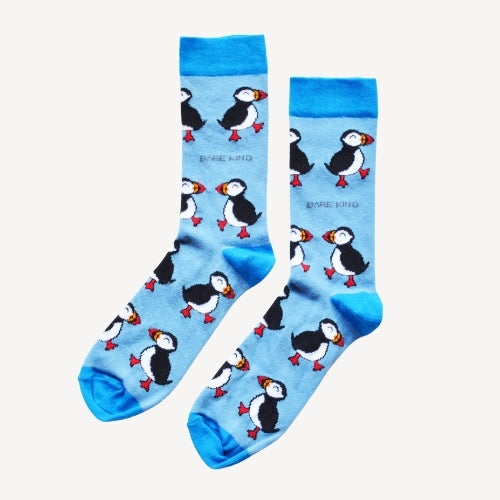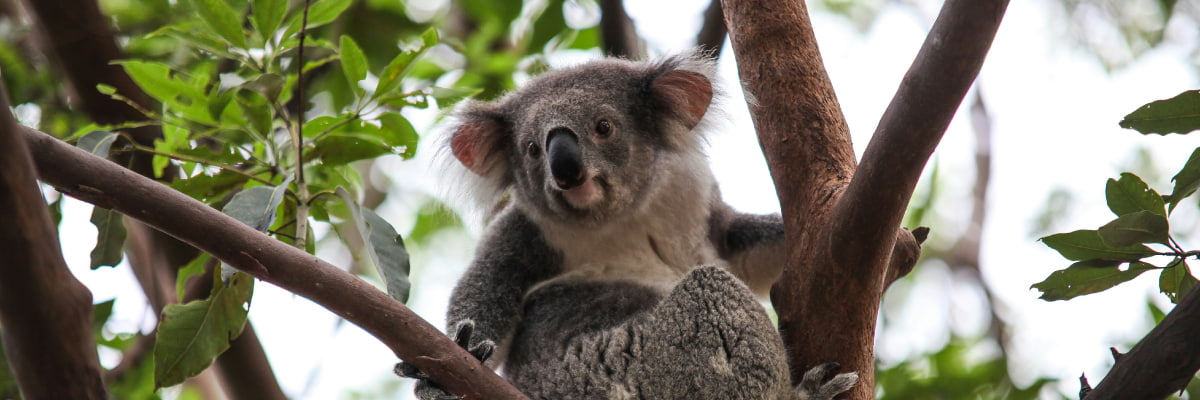
The Wonderful World of Koalas: Australia’s Cuddly Tree Huggers
In the eucalyptus bushlands of Australia, a fuzzy, grey creature spends most of its day nestled in the crook of a tree branch. The koala, often mistaken for a bear, is one of the most beloved animals in the world.
Koalas are known for their endearing appearance and slow-paced lifestyle. These adorable Aussies are famous for their sleepy habits, cute noses, button eyes, and tree-hugging lifestyle. However, there’s more to koalas than just a cute face.
In this article, you’ll learn some fun facts about koalas, including their homes and importance in Australia’s natural and cultural landscape. We’ll also let you in on how you can save this vulnerable species by simply buying some socks!
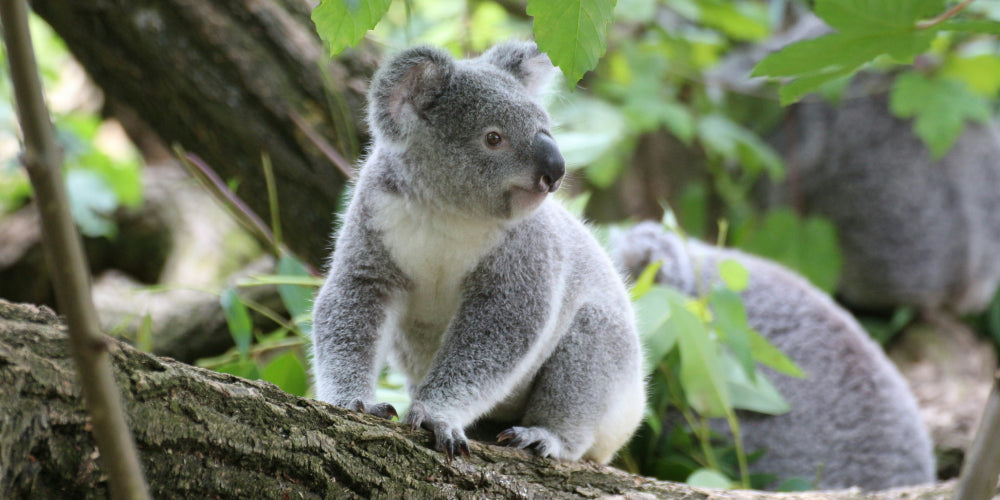
Fun Facts About Koalas
We did lots of digging and compiled these fun facts about koalas. Top of the list is that they are extremely sleepy creatures, just like babies.
- Sleepy creatures: Koalas sleep 18-20 hours a day! They need all that rest to digest their fibrous, low-nutrient, eucalyptus leaf diet.
- Picky eaters: Besides the fact that koalas only eat eucalyptus leaves, they are very selective about the type of eucalyptus leaves they eat. Out of over 600 species, they mainly feed on just a few types.
- Unique fingerprints: Koalas’ fingerprints are almost indistinguishable from human prints. Even under a microscope, they can be difficult to tell apart!
- Eucalyptus diet: Koalas eat up to 1 kilogram (2.2 pounds) of eucalyptus leaves each day. The leaves provide them with both food and water, which leads us to the next fun fact.
- Hardly drink water: Koalas rarely drink water. That’s why you’ll always find them on trees and hardly at watering holes like other animals.
- Tree huggers: Koalas don’t only hug trees for climbing, but they also climb to keep cool. Trees help them regulate their body temperature during hot weather.
- Baby koalas: Baby koalas are also called joeys. They are born the size of a jellybean and spend about six months developing in their mother’s pouch before they emerge.
- Vocal communication: Despite their cuddly appearance, male koalas have a deep, bellowing call. This can be heard from up to kilometers away and is their mode of communication with other koalas.
- So much poop: Koalas produce over 200 small, hard droppings each day. Their poop is an essential part of their digestive process and helps maintain their gut health.
- Slow metabolism: Koalas have one of the slowest metabolic rates among mammals. This helps them conserve energy.
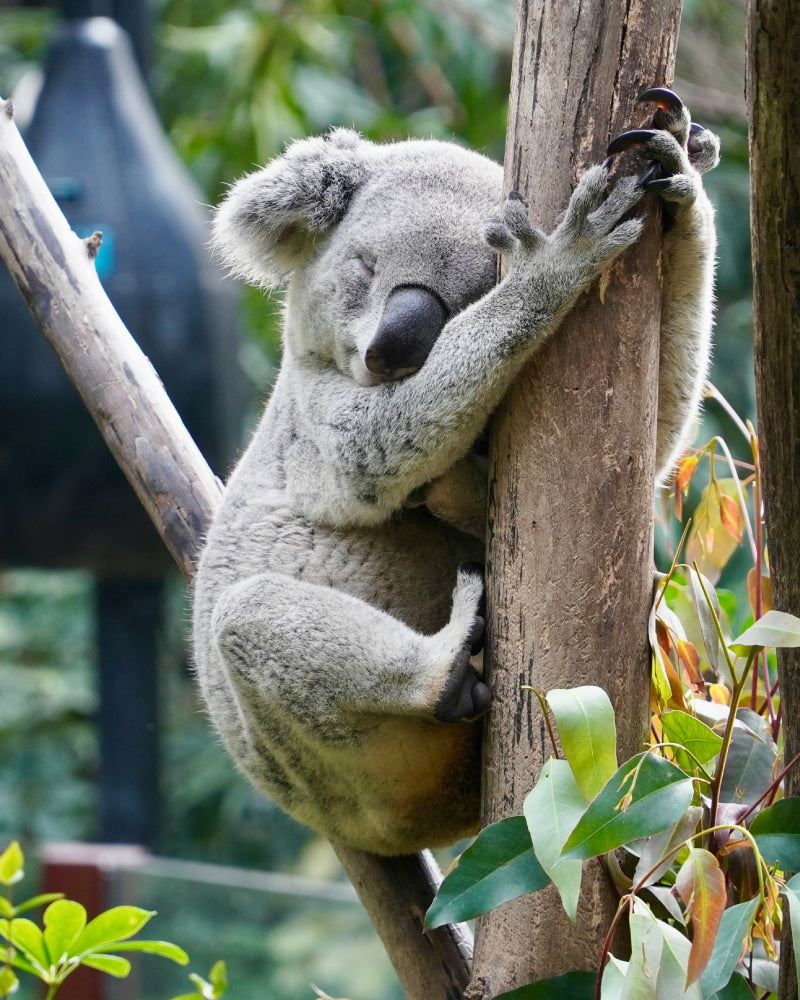
Koalas’ Cultural Significance
Koalas hold a special place in Australian culture. They are recognised worldwide as symbols of Australia’s unique wildlife. The eucalyptus bushlands of eastern and southeastern Australia give them everything they need—food, shelter, and a place to catch up on all that sleep.
They are a major attraction for tourists, drawing millions of visitors to Australian zoos, wildlife parks, and natural reserves each year.
In addition to their role in tourism, these true blue Aussies have become powerful emblems in campaigns for wildlife conservation. We’ve featured them on sour green socks to raise awareness about the importance of preserving Australia’s natural heritage.
In popular culture, koalas are often portrayed as gentle, endearing creatures. They appear in multiple children’s books, animated films, stuffed animals, and socks. Their image evokes feelings of warmth and care. Share information about your brand with your customers. Describe a product, make announcements, or welcome customers to your store.

Are Koalas Endangered Species?
Koalas are not officially classified as endangered across their entire range. However, they are listed as vulnerable or threatened on the International Union for Conservation of Nature (IUCN) Red List. The list indicates that they face a high risk of extinction in the wild.
In some parts of Australia, koala populations have declined so significantly that they are considered locally endangered. For example, in 2022, the Australian government officially listed koalas as endangered in New South Wales, Queensland, and the Australian Capital Territory. This is because of four main reasons:
- Severe habitat loss - As more forests are cleared, koalas are left with fewer places to live. This is a big problem when you’re as picky about your trees as they are.
- Disease - Diseases like chlamydia (yes, even koalas can get it) are taking a toll on some populations.
- Climate change - As temperatures rise and weather patterns shift, the eucalyptus trees koalas depend on continue to reduce in numbers.
- Bushfires - Bushfires destroy the eucalyptus trees that Koalas rely on to survive. This leads to further habitat loss and the dwindling of the Koala population.
The overall trend for koalas is worrying. Therefore, ongoing conservation efforts are crucial to prevent further declines and ensure their long-term survival.
But all is not lost! Plenty of people and organisations are working hard to protect koalas and their habitats. As a brand, we’re contributing to these koala conservation efforts. Read on to learn how.
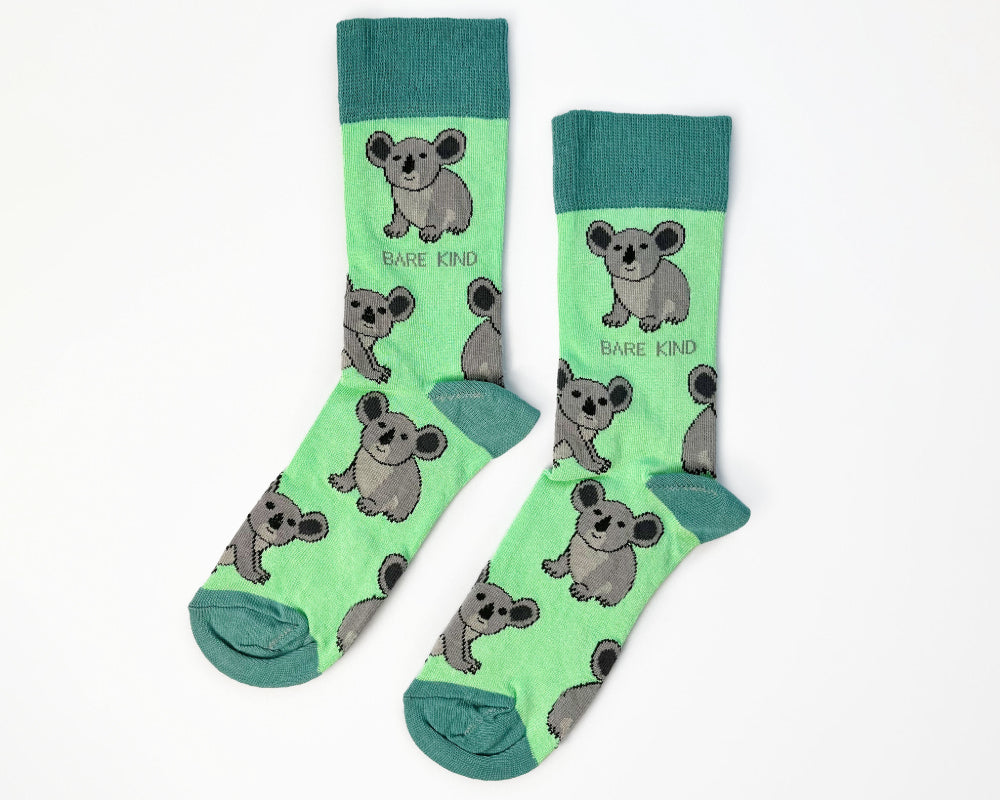
Our Contribution to Koala Conservation
We donate 10% of the profit from our koala socks to the Australian Wildlife Conservancy. This donation goes into saving several other Australian species as well, like numbats, platypuses, wallabies, and Gouldian finches. (Yes, we have these animal socks in our Australian collection).
You can help protect our furry friends, too! Be part of the koala movement by simply buying some koala socks!
Our socks are made from bamboo fiber. Bamboo socks are as soft as cashmere but last much longer. They are engineered to conform to the contours of your feet, with highly elastic precision knit for a snug fit.
In addition to being made from environmentally friendly material, bamboo animal socks are breathable, moisture-wicking, and comfy. These are thermal socks that remain cool in the summer and warm during winter. Get a pair and use them as work socks, dress socks, bed socks, or even loungewear socks.
In a Nutshell
Koalas are cute, fuzzy, Aussie animals that love hanging out on eucalyptus trees. They are essential to the ecosystem and a joy to look at. Sadly, they have been flagged by IUCN as vulnerable since their population is rapidly dwindling.
At Bare Kind, we make novelty socks from bamboo fiber and donate 10% of all our profit to 35+ charity partners. We are B-Corp Certified, use 100% plastic-free packaging, and are 100% carbon neutral. The bamboo itself is 100% sustainably grown and great for the planet.
In the past, our efforts have helped save 887 acres of tropical rainforest, fund 209 boxes of fish for penguins, adopt 12 giraffes, and so much more. You can be a part of the movement by buying the world’s most comfortable socks that save animals. It’s an easy but effective way to make a pawsitive impact from the comfort of your home or office.
Explore our wide selection of short and long bamboo socks. We guarantee you’ll find something for everyone in the family – kids, and adults alike!
